After months of waiting, the iPhone 17 Pro Max has finally arrived with a new aluminum frame design, a “heavyweight” camera cluster, and superior hardware power. Apple does not hide its ambition to turn this model into a professional shooting and filming tool in users’ pockets.



Close-up images of the camera clusters of the most popular flagship lines today: iPhone 17 Pro Max, Huawei Pura 80, Samsung Galaxy S25 Ultra.
However, behind the sensor and lens upgrades, the new camera cluster design is controversial. With a flagship positioned as high-end, users not only expect beautiful photos but also want a harmonious, sophisticated appearance - something that the iPhone 17 Pro Max seems to have failed to fulfill.
In terms of configuration, the iPhone 17 Pro Max is equipped with a 6.9-inch Super Retina XDR screen with a 120 Hz ProMotion refresh rate, an A19 Pro chip with a 3 nm process that improves performance and saves power, 8 GB of RAM, and internal memory from 256 GB to 1 TB.
4,500 mAh battery, fast charging via USB-C, supports USB 3.2 standard for high data transfer speed. The highlight is the triple 48 MP synchronized rear camera: 26 mm f/1.78 wide angle, 13 mm f/2.2 super wide angle and 100 mm f/2.8 telephoto with 4x optical zoom. The front camera is also upgraded to 18 MP, supporting Center Stage.
Unbalanced protruding camera cluster
Unlike previous generations, the iPhone 17 Pro Max has a camera cluster placed on a “plateau” - a horizontal edge that extends almost across the upper back. The three lenses protrude from the surface, making the camera cluster the visual focal point but at the same time making the back of the device less harmonious.

The controversial camera cluster on the iPhone 17 Pro Max.
This is also the largest protruding camera cluster ever on an iPhone, making the device look like it's "wearing a hat" on top.
When placed on a table, the plateau makes the device not lie flat, easily wobbling when the user touches it. For those who are used to the minimalism and sophistication that are typical of Apple's design, this change may be disappointing.
In addition, the large camera cluster makes it difficult to choose a beautiful, well-fitting case, because the protruding part needs careful protection but can break the overall lines if the case is not carefully chosen.
In terms of functionality, the new telephoto cluster, although upgraded to 48 MP, only stops at 4x optical zoom, lower than the 5x of last year's iPhone 15 Pro Max. The 8x zoom that Apple emphasizes is actually digital zoom, depending on algorithms and sensor cropping. When shooting in low light, details are more likely to be flat and grainy than with true optical zoom. For a top-of-the-line flagship, this is not as strong a step forward as users expect.
Android flagships are ahead in design
In the high-end segment, aesthetic factors play an equally important role as configuration. Huawei Pura 80 Ultra is a typical example: The company turns the camera cluster into an artistic highlight with a gold border and light ray pattern, creating a luxurious feel.
Not only beautiful, this is also the first smartphone equipped with a dual telephoto system with 3.7x and 9.7x optical zoom capabilities, providing a much better zoom experience.

Camera configuration of current flagship phone lines on the market.
Meanwhile, the Samsung Galaxy S25 Ultra maintains a minimalist yet sophisticated design, with a separate camera cluster for each lens neatly placed in the left corner. The flat back, without the need for a horizontal "step", gives a light feeling and is easy to match with a case.
Xiaomi 15 Ultra chooses a large round module style reminiscent of Leica cameras. The round cluster is both balanced and has strong brand recognition, creating the feeling that the device is a work of art, not just a technological device.
Overall, the iPhone 17 Pro Max is a significant hardware upgrade, especially in terms of image processing power and sensor quality. However, the camera cluster design is a controversial point.
To maintain its position as the industry's "design standard," Apple needs to find a way to slim down or beautify the plateau, turning it into an aesthetic detail rather than just a protruding block of components at the back.
Apple may have to answer to the mixed opinions about the camera cluster on the upcoming iPhone 18 series: Will the company return to the minimalist philosophy or continue to pursue the "bulky" camera cluster? Users will probably have to wait another year to see which direction Apple chooses.

Configuration of the most popular phone lines on the market today.
Source: https://vtcnews.vn/camera-iphone-17-pro-max-cau-hinh-chua-du-manh-thiet-ke-chua-du-dep-ar965413.html






![[Photo] Science and Technology Trade Union honors exemplary workers and excellent union officials](https://vphoto.vietnam.vn/thumb/1200x675/vietnam/resource/IMAGE/2025/9/17/842ff35bce69449290ec23b75727934e)

![[Photo] General Secretary To Lam chairs a working session with the Standing Committee of the Government Party Committee](https://vphoto.vietnam.vn/thumb/1200x675/vietnam/resource/IMAGE/2025/9/17/cf3d855fdc974fa9a45e80d380b0eb7c)

























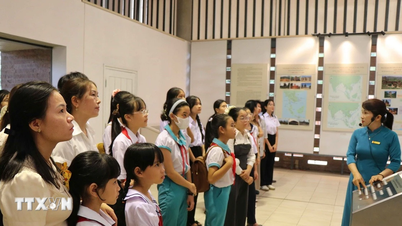







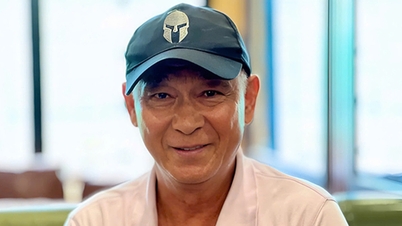



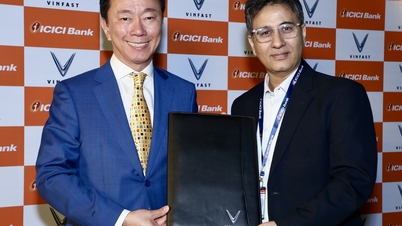



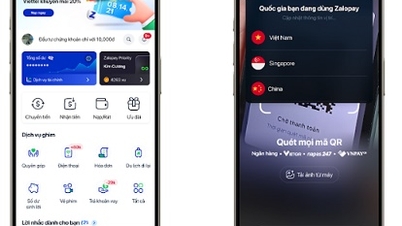









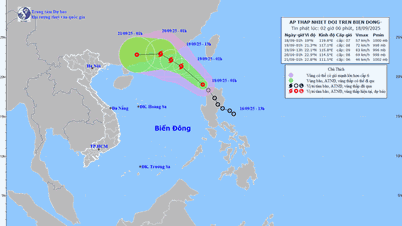



































Comment (0)